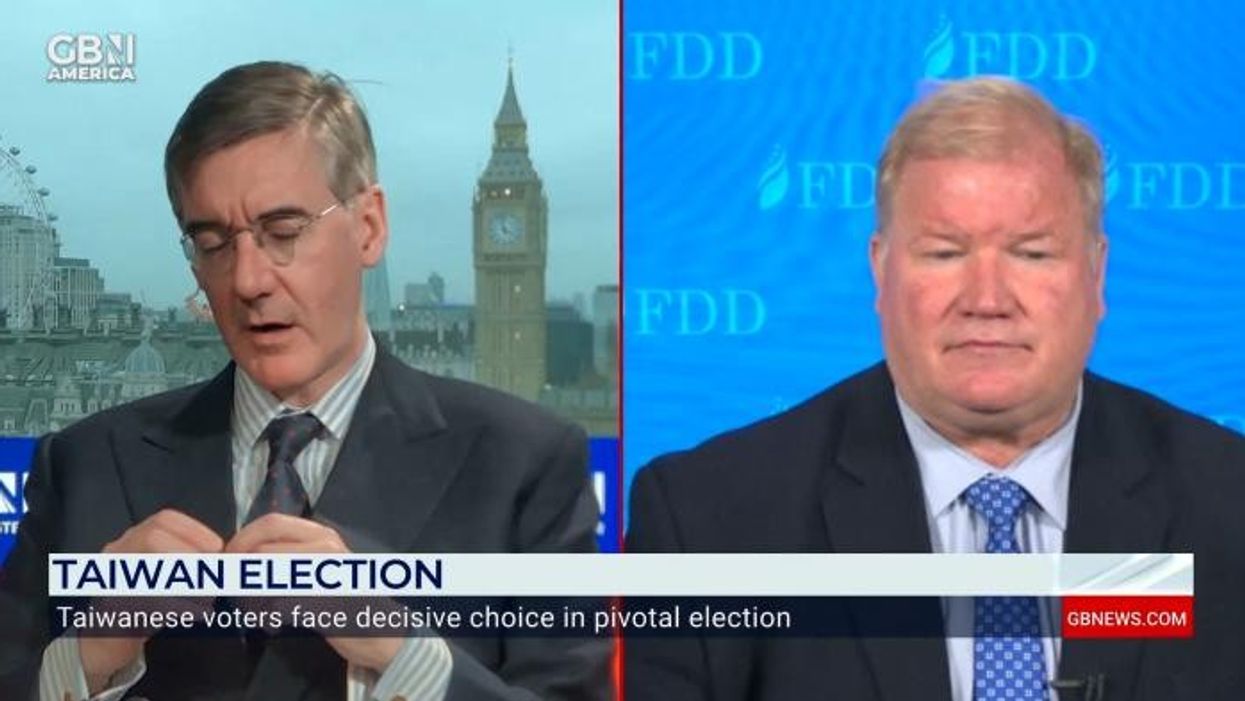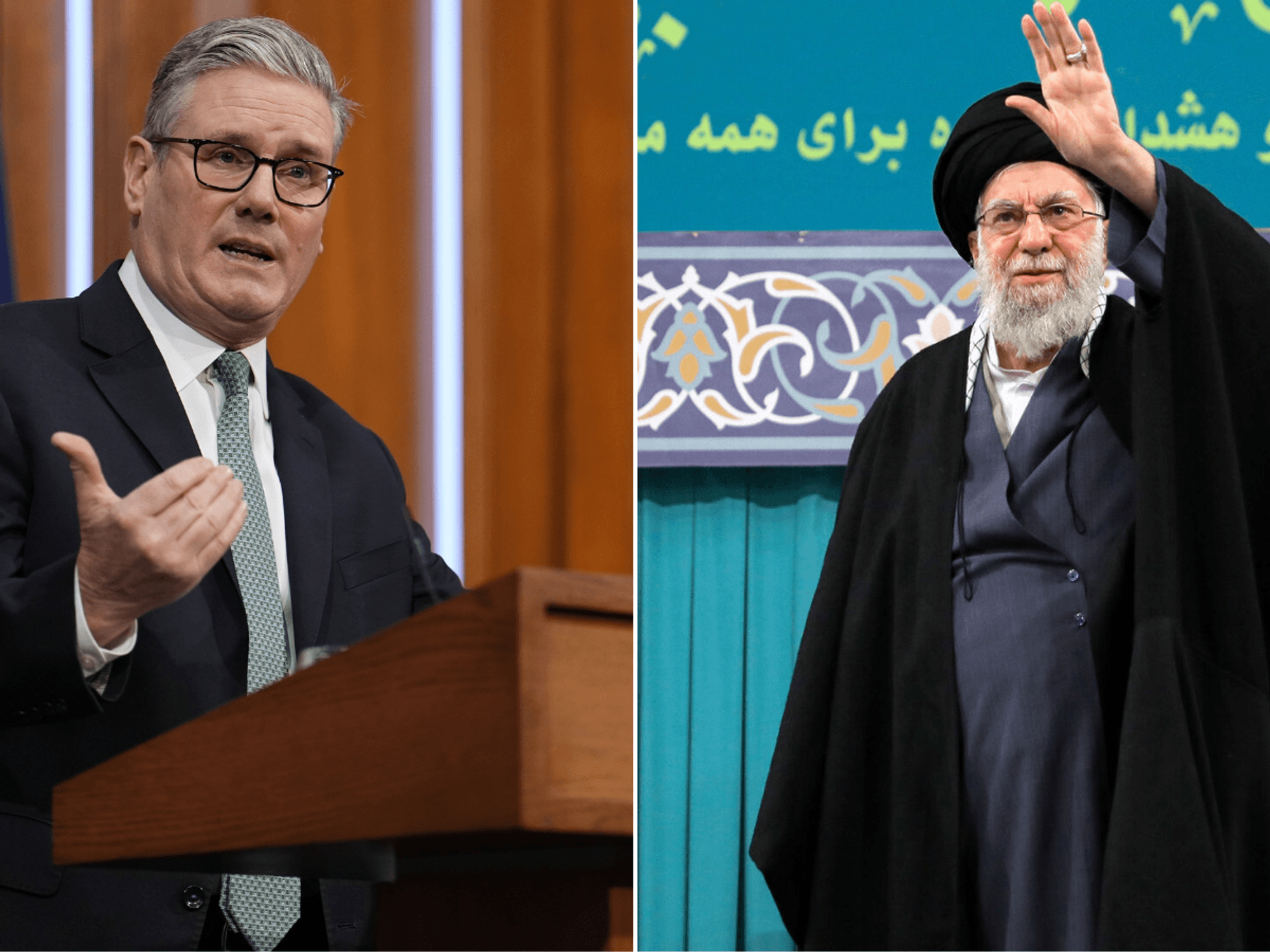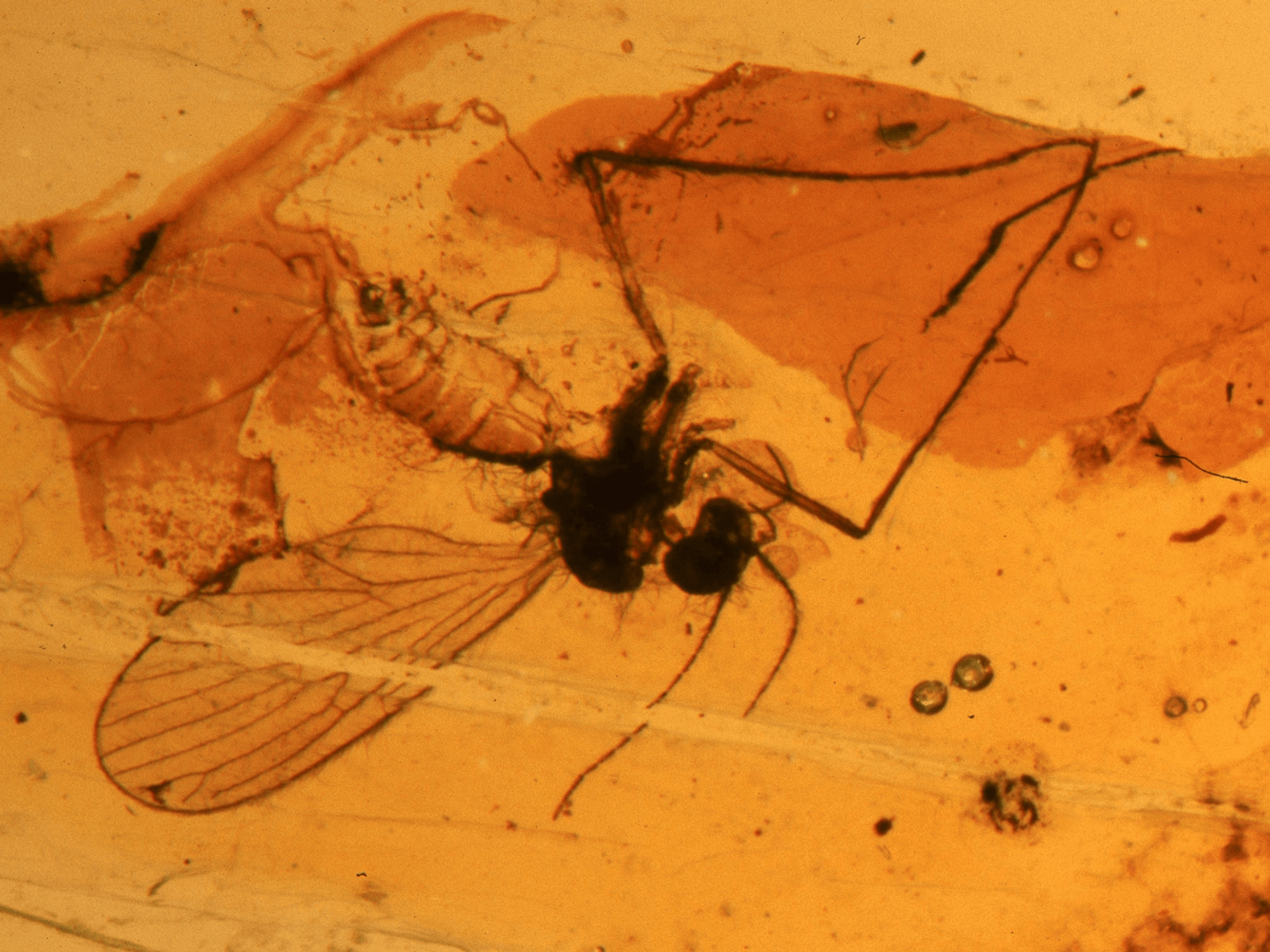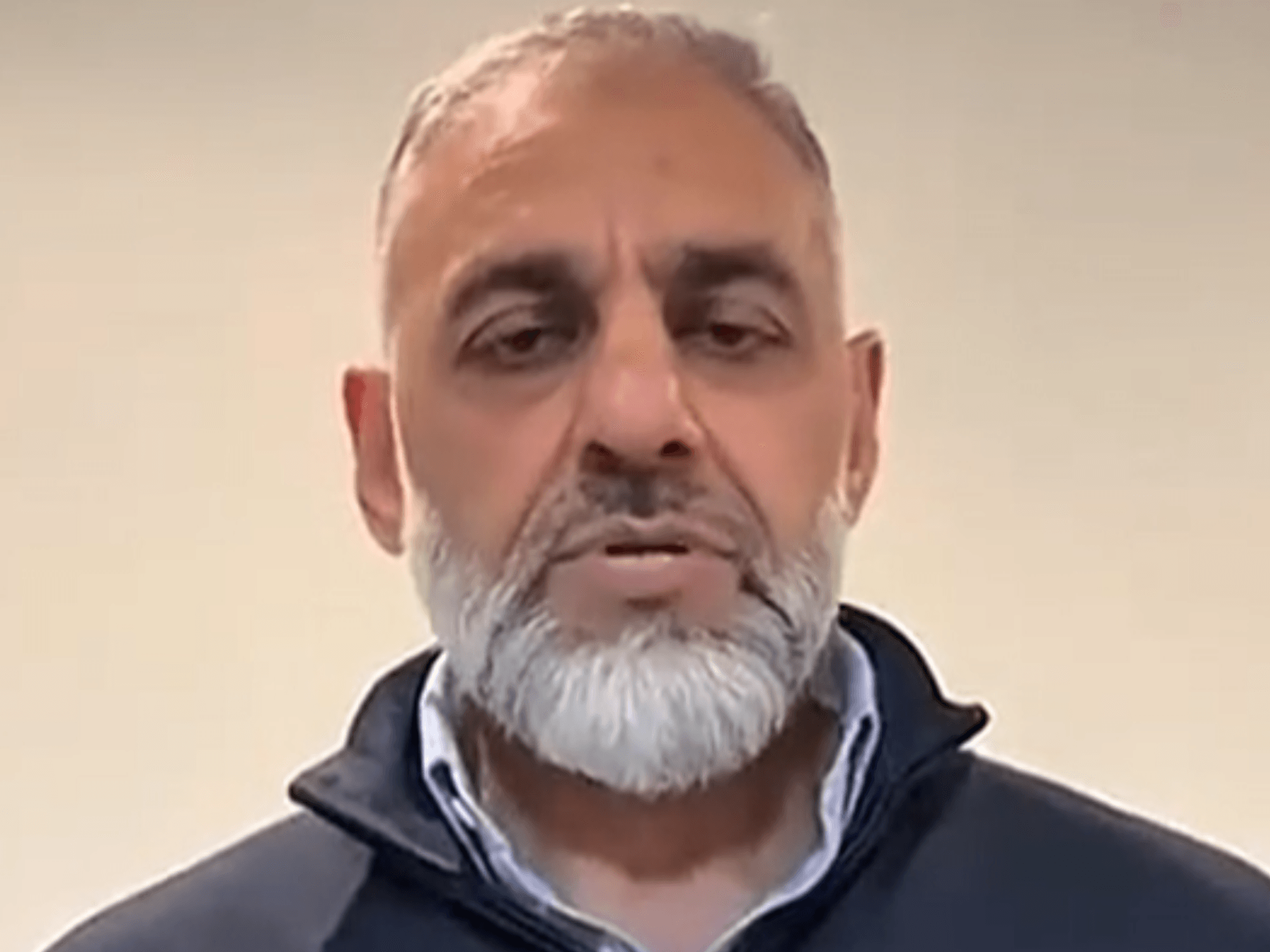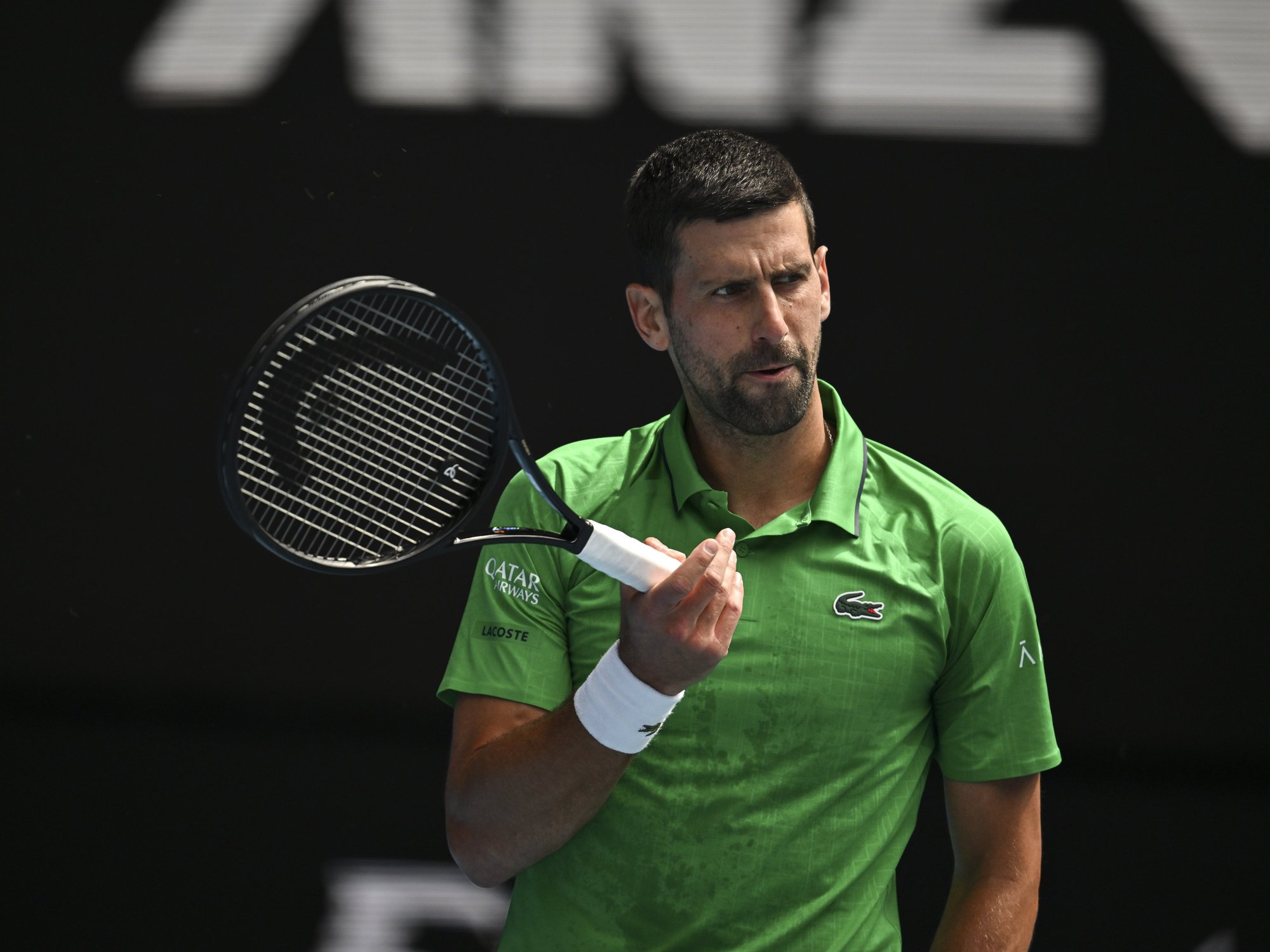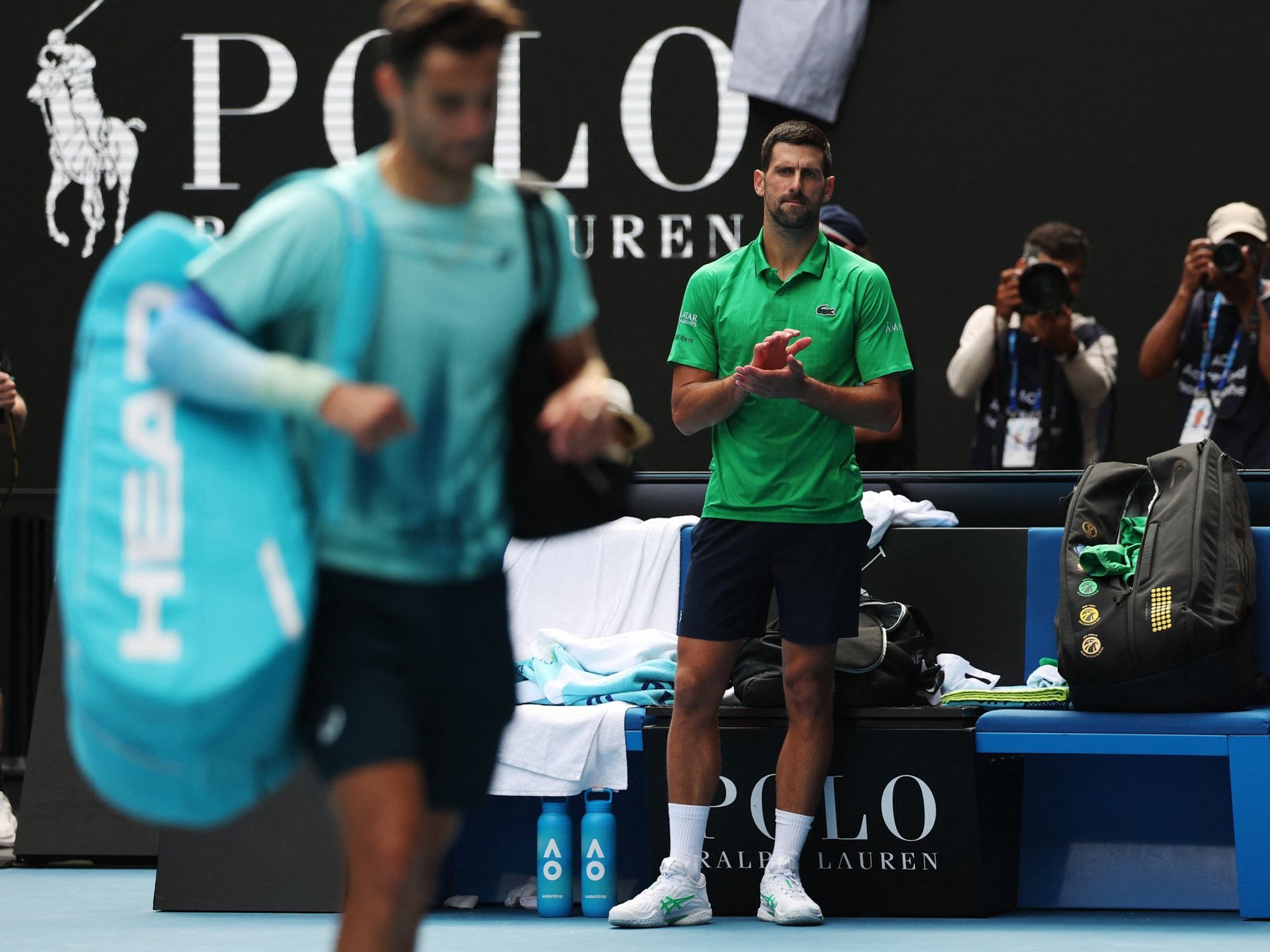Taiwan elections: Key policy ‘doesn’t account’ for Xi ‘aggression’ as China ramps up pressure

Mark Montgomery spoke to Jacob Rees-Mogg on GB News America
Don't Miss
Most Read
Latest
A cornerstone policy for one of Taiwan’s major political parties “doesn’t account” for China’s ramped up aggression, according to Mark Montgomery.
The former US Navy Rear Admiral spoke to Jacob Rees-Mogg on GB News America about the upcoming Taiwanese elections and the difficult setting they will take place in.
Amid Xi Jinping’s “aggressive populism”, voters will take to the ballots and decide upon their country’s future.
One of the parties which could ascend to power is the Kuomintang (KMT), who are renowned for having a softer stance on Chinese relations.
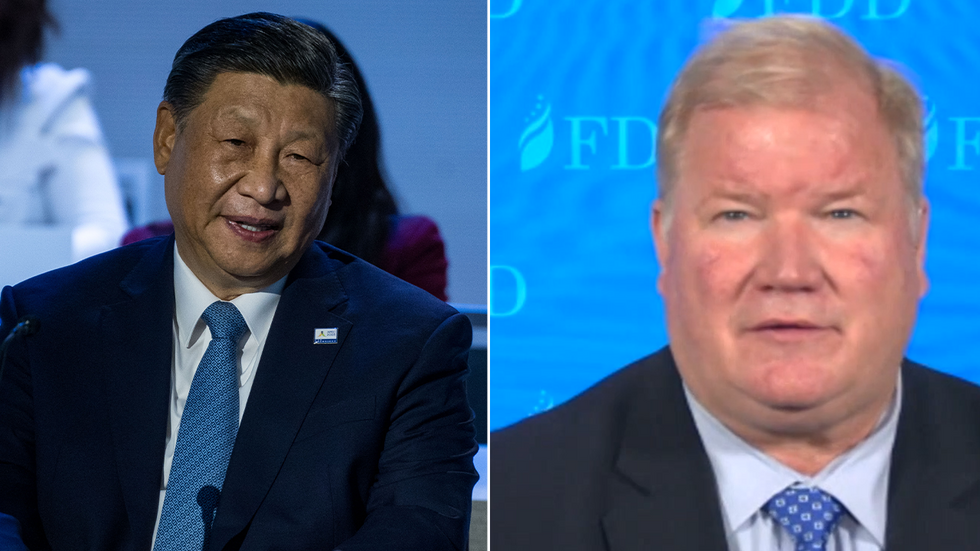
Mark Montgomery says a key policy 'doesn't account' for Xi Jinping aggression
|GETTY / GB NEWS
According to Montgomery, the stance is now outdated as it does not take into consideration where China currently finds itself.
“The KMT had a view on China that was probably accurate in 2010 and 2012”, he said.
“The idea was, ‘if we don’t poke the bear, the bear won’t attack’. Then you have good trade and good foreign direct investment in each other’s countries and China won’t try to assert itself.
“That doesn’t account for Xi’s much more aggressive populism and nationalism inside China and Xi’s belief that it is the Chinese Communist Party’s legacy to reincorporate Taiwan completely.
“He is a cult of personality and an embodiment of the CCP, so it’s his legacy to reincorporate Taiwan.”
While the KMT have historically adopted a softer stance towards China, Montgomery believes the lines have been blurred between the country’s two major political parties.
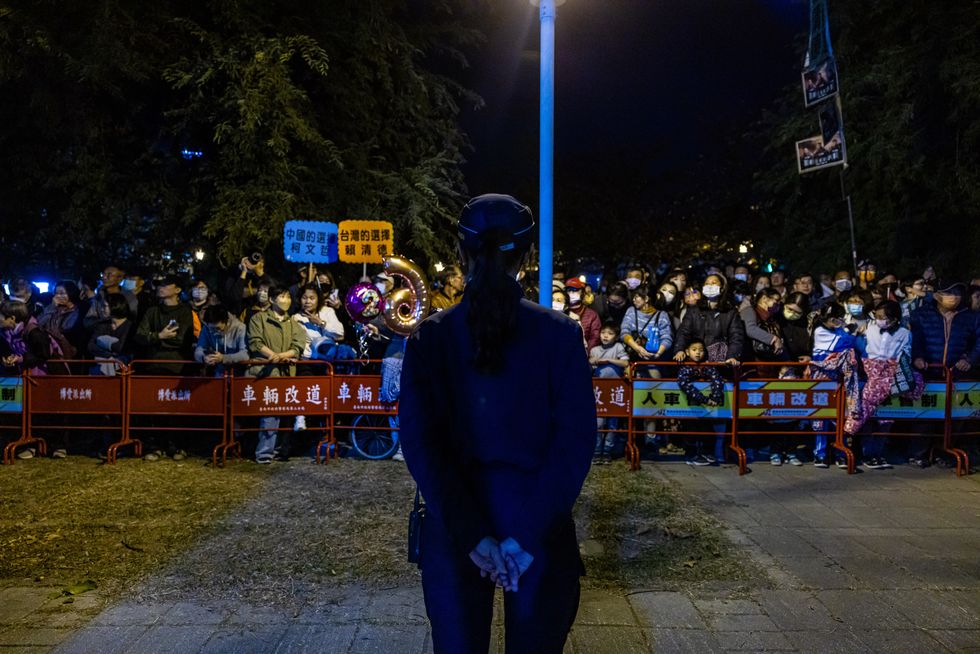
Taiwanese voters will take to the ballot box tomorrow
|GETTY
The Democratic Progressive Party (DPP) have maintained a separatist stance from China, and have aligned themselves more with the youth vote.
According to Montgomery, the KMT are moving towards a similar policy as the youth vote becomes increasingly important.
“The KMT has moved away from being too concerned about infuriating China”, he said.
“They’re recognising that the youth of Taiwan do not see themselves as Chinese and therefore don’t vote for anyone that would sound like they want reconciliation.
“So therefore, you see less of that from the KMT.”
The parties need to move towards closer relations with the US, he added, in order to effectively deter China from potentially undertaking military action.
“The DPP clearly has worked closely with the United States to push forward military sales”, he said.
“It has raised defence spending from about 1.6 per cent of GDP on defence to about 2.5 per cent of GDP on defence.
“These policies of the DPP might be softened by the KMT and of course that’s a risk because if you do not make these kinds of investments in defence, you do not make clear your relationship with the United States.
“Therefore, you don’t send a strong deterrence message to China.
“I think it’s more in the messaging that’s important in this election that the DPP winning is a message that Taiwan still feels its future is with the United States.”


